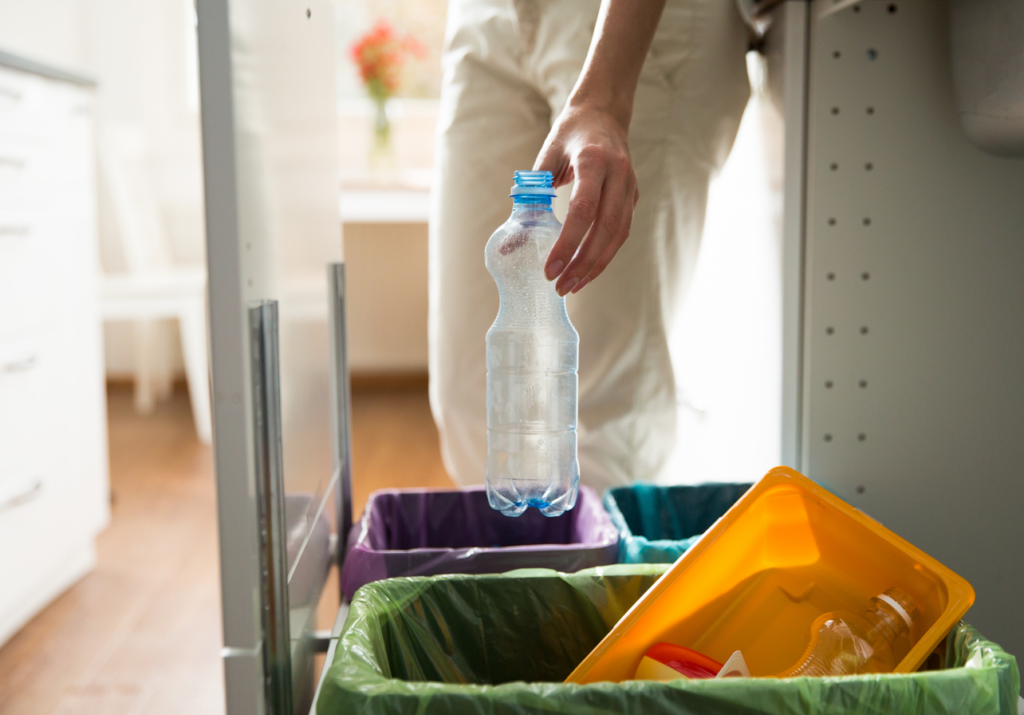Homes, businesses, schools all create varying levels and types of waste. Whilst much of our waste can be recycled, there are still some forms of waste that are classed as general domestic waste and its end of life is landfill. There are some types that are unrecyclable – wet wipes, black plastic, tissues to name a few should always be placed into the general waste, as they contaminate recycling batches.

Although manufacturers are finding new and innovative ways to make their products recyclable, there will always be a few items that cannot be amended in such ways – these result in levels of domestic waste piling up. If this type of waste is becoming too hard to handle, here are some handy tips:
Think Recycling!
Many times items get put into the domestic waste bin, despite having recyclable elements. Any part of your waste that can be recycled should be done so by correctly separating them into compartments. An item being wrongly placed into the general rubbish bin is often the result of not knowing the waste can be separated, or even just convenience to place it in domestic. It is good practice to examine your waste, and know the different end-of-life solutions for the different material types.
Change Purchasing Habits
Is there is a particular form of waste that is building up in your bins? Often reducing this form of waste can be achieved by amending your purchasing habits. Food waste is a great example of this, many of us buy excess amounts of food which then end up in the rubbish bin when not consumed. This can be easily amended by thinking before you buy, making a shopping list, and avoiding any unnecessary items when out shopping.
Re-use Your Items
Before it becomes domestic waste, it’s always advisable to see if you can re-use the item. Many of our everyday items will have multiple usages or purposes, whether it is re-using takeaway containers for storage or lunchboxes, or saving your carrier bags for the next time you head to the supermarket. A lot of household items have a 2nd life, a little inventive acumen that will help to keep waste levels low.
Dispose Smartly
Large and bulky items often take up a lot of space in our recycling bins and an overfilled bin could sway a recycler to put any future recyclable waste into domestic. Flattening your boxes and card, crushing bottles and cans, and deflating packaging will all compact your waste levels down, so it will leave more room in the waste receptacles, allowing for extra space for additional rubbish.
Waste consumption is inevitable and unavoidable, but a few smart changes will help reduce the levels going into domestic waste and recycling.